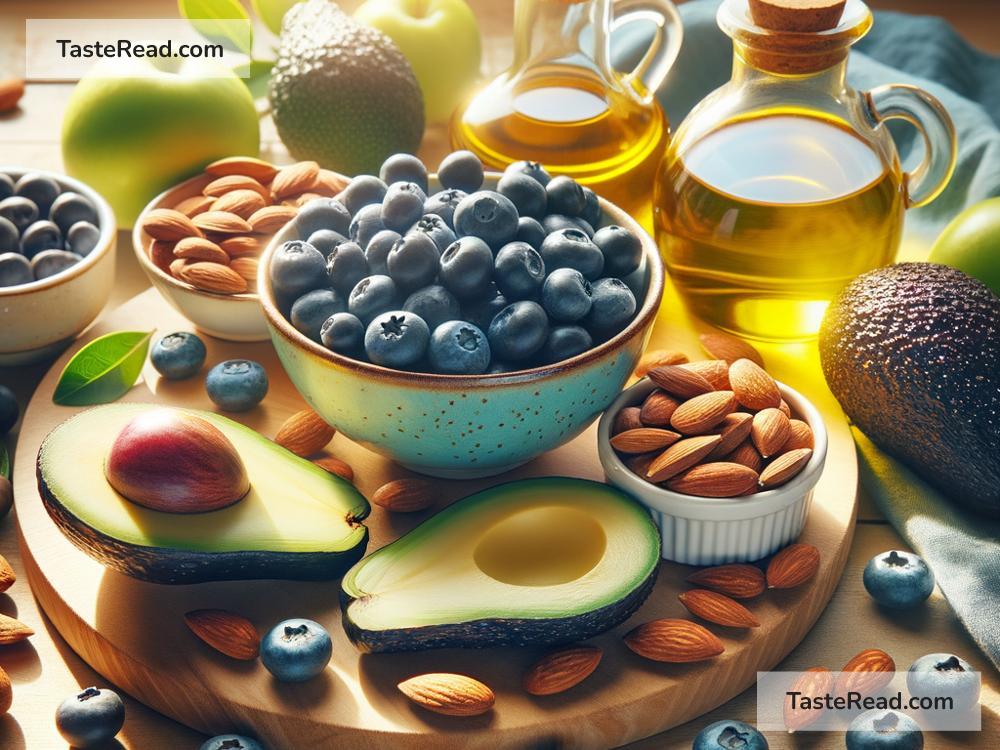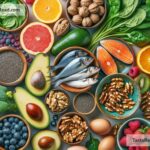Foods That Promote Skin Elasticity: Your Path to Healthy, Youthful Skin
We all want healthy, glowing skin that stays firm and youthful as we age. However, maintaining excellent skin elasticity—our skin’s ability to stretch and bounce back—becomes more challenging as we grow older. Luckily, what we eat can significantly influence the health and resilience of our skin. By including certain foods in your diet, you can help your skin stay supple, hydrated, and elastic. In today’s blog, we’ll explore the best foods to promote skin elasticity.
What Is Skin Elasticity, and Why Does It Matter?
Skin elasticity is your skin’s ability to snap back after being stretched. As you age, your skin naturally loses some of its elasticity, leading to sagging and wrinkles. Factors like sun exposure, pollution, dehydration, and poor nutrition can speed up this process.
The good news is that you can help preserve your skin’s elasticity through the right diet. Certain foods are packed with nutrients that support collagen and elastin—proteins responsible for keeping your skin firm and bouncy.
Top Foods to Boost Skin Elasticity
1. Fatty Fish
Fatty fish like salmon, mackerel, and sardines are rich in omega-3 fatty acids, which are essential for keeping your skin hydrated and plump. Omega-3s help reduce inflammation, which is important for maintaining the strength of your skin’s cell membranes. This, in turn, keeps your skin smooth and elastic.
Additionally, fatty fish contain zinc, which helps repair damaged skin and promotes collagen production. Try incorporating fatty fish into your diet at least once or twice a week to see the benefits.
2. Avocados
Avocados are creamy, delicious, and incredibly nutritious for your skin. They are loaded with healthy fats that help keep your skin flexible and hydrated. Plus, avocados contain vitamin E, a powerful antioxidant that fights free radicals and reduces skin damage.
Vitamin C, also found in avocados, supports collagen synthesis, further boosting skin elasticity. Whether you’re spreading avocado on toast or blending it into a smoothie, this fruit is a skin-friendly powerhouse.
3. Citrus Fruits
Oranges, grapefruits, lemons, and limes are not just refreshing—they’re packed with vitamin C, which plays a crucial role in collagen production. Collagen is the protein that gives your skin its structure and firmness.
Vitamin C also protects your skin from free radicals, which can damage collagen and elastin. Start your day with a glass of orange juice or add citrus slices to your water for a simple way to incorporate these skin-boosting fruits.
4. Leafy Greens
Dark, leafy greens like spinach, kale, and Swiss chard are excellent sources of antioxidants and vitamins, including vitamin A and vitamin C. These nutrients help repair damaged skin, enhance skin cell turnover, and boost collagen production.
Leafy greens also contain lutein, which improves skin hydration and elasticity. Don’t love salad? Add spinach to a smoothie or blend kale into soups to reap the benefits without sacrificing flavor.
5. Nuts and Seeds
Almonds, walnuts, sunflower seeds, and chia seeds are packed with healthy fats, vitamin E, and other minerals that keep your skin nourished. Vitamin E is particularly essential for maintaining skin elasticity, as it protects collagen from damage caused by free radicals.
Some nuts and seeds, like walnuts and flaxseeds, also contain omega-3 fatty acids, making them doubly beneficial for your skin’s health. Snack on a handful of nuts or sprinkle seeds on your meals to boost skin elasticity.
6. Tomatoes
Tomatoes are rich in lycopene, an antioxidant that protects your skin from sun damage. Sun exposure is one of the leading causes of collagen breakdown, so lycopene helps preserve your skin’s firmness.
Tomatoes also contain vitamin C, which helps with collagen production. Cooked tomatoes (like in sauces) often release more lycopene than raw ones, so toss them in soups or pasta for a tasty way to benefit your skin.
7. Eggs
Eggs are a fantastic source of protein, which is essential for collagen and elastin production. They also contain biotin (vitamin B7), which promotes skin moisture and elasticity.
Eggs are easy to prepare and versatile—you can enjoy them boiled, scrambled, or in a variety of dishes. Make eggs a regular part of your diet to support your skin.
8. Berries
Strawberries, blueberries, raspberries, and blackberries are rich in antioxidants that fight free radicals. They also contain vitamin C, which helps produce collagen and enhances skin elasticity.
Berries make a great addition to smoothies, yogurt bowls, or even desserts. Their sweet taste is just an added bonus to their skin-friendly properties.
Healthy Habits Matter, Too
While diet plays a vital role in promoting skin elasticity, it’s important to combine good nutrition with healthy lifestyle habits. Drinking enough water keeps your skin hydrated, while regular exercise improves circulation and oxygen flow to your skin cells. Protecting your skin from excessive sun exposure and avoiding smoking are also key factors in maintaining its elasticity.
Conclusion
Your skin reflects what you put into your body, so choosing foods that support collagen production and overall skin health is important for maintaining elasticity. Incorporate fatty fish, avocados, citrus fruits, leafy greens, nuts, seeds, tomatoes, eggs, and berries into your diet to help your skin stay firm, hydrated, and youthful.
Remember, maintaining skin elasticity isn’t just about age—it’s about health. A balanced diet with these skin-boosting foods, paired with healthy habits, is the recipe for glowing, elastic skin. Give these foods a try, and your skin will thank you!


